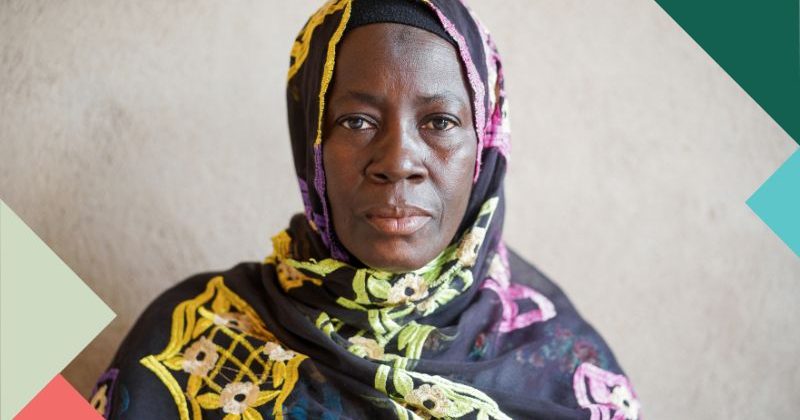When addressing social gender norms is a big ask in dynamic, fragile and conflict-affected contexts, how can we nudge gender equality forward?
In 2023, Itad conducted an evaluation of CSSF Africa’s work on gender in security. This blog draws out promising approaches from this portfolio for other projects working on gender and security in fragile and conflict affected contexts.
Often in these contexts, gender inequality is pervasive at all levels, local women’s rights organisations (WROs) face shrinking political spaces, and donors are constrained by a short funding cycle within which to support change. In this context, work on changing gender norms is often extremely challenging. Yet, with targeted strategies we can disrupt inequalities, create new spaces, and open the door to change.
Key takeaways from the CSSF Africa portfolio:
- Do your gender research and work with implementing partners who know the context well
- Put safe spaces for women at the centre of projects
- Lead with trust-building, particularly when working with institutions.
Do your research and work with implementing partners who know the context well
Social gender norms vary from each country, region, community and even household. Therefore, finding the entry points to address gender inequality requires a deep understanding of the power relations and role and responsibilities, but also needs and vulnerabilities of different men and women in each context. Understanding these is an essential pre-requisite for successful work on promoting gender equality.
In CSSF Africa programming, working with WROs has offered a way to navigate the complexities and sensitivities of women’s decision-making and addressing gender-based violence (GBV) at local and municipal level.
Engaging with communities through local WROs is both a UK global strategic commitment and in line with emerging good practice on women, peace and security (WPS) localisation, as it strengthens WROs’ capacity to deliver WPS programming and directly increases women’s possibilities for participation. It can further increase local ownership by allowing the WROs to define the aims and design the programming approaches in ways which they see as being most suitable for the context.
In Mali, CSSF Africa’s approach to gender is deeply contextualised through working with well-established WROs (FEDE and WilDAF). The WROs connections with civil society actors and religious and social leaders, knowledge of local languages and local-level analysis has enabled them to identify the best way forward for working on gender in their contexts.
However, it is essential to resource this work properly and also provide the WROs with technical assistance where this is requested – such as in helping them navigate donor requirements.
Put safe spaces for women at the centre of projects
A further key finding of the evaluation was that the creation and fostering of safe spaces for women proved to be essential for success, be in communities or in security sector institutions. These are spaces where women are able to speak freely uninterrupted by men; build mutual trust, coalitions, and networks; hone their advocacy skills; articulate their needs and demands; and develop common agendas and strategies for action.
CSSF Africa’s Women to Women project in Somalia has shown the importance and effectiveness of creating such spaces at the community-level. The Women to Women project created a platform where community women could discuss security issues, and, using participatory action research, identify key needs. Participants noted how the platform gave them both a physical and emotional safe space and a network from which to leverage action.
This is a crucial step prior to engaging with other actors – be they superiors, human resources, other departments in security sector institutions, or state and non-state security and justice actors – and should be afforded ample space and resources.
Lead with trust-building – especially when working with institutions
A common challenge globally for gender work is active and passive resistance to work on these issues. This is particularly true in security institutions such as military or the police, which are often heavily male-dominated, and where the integration of gender perspectives has been often regarded as being of secondary importance at best.
When working with security sector institutions, CSSF Africa has made good progress where they have embedded team members on the ground in project locations such as Borno State, Nigeria, which enabled them to create good relationships with both security institutions and NGOs. These relationships enabled sensitive issues, be it human rights abuses or addressing GBV, to be put on the table. This has led to concrete changes, such as building capacity in forensics for GBV cases to identify and convict perpetrators.
Leading with trust building and finding ways to work on gender with state institutions which are strategically beneficial for them can have powerful effects.
The Early Recovery Initiative (ERI) project in Somalia is working with government on newly recovered areas from al-Shabaab. The project has shown how involving women and marginalized communities from the beginning of recovery can help meet government aims of re-building trust in areas where historically trust was low. ERI involves women and marginalized community members in decision-making and community feedback mechanisms which has inclusively supported cross-community confidence in the government proposition.
Don’t give up on gender
CSSF Africa projects show that there are ways forward for gender equality despite challenging conditions and funding cycle constraints. Social change is slow and may face resistance and backlash and at times huge setbacks by conflict.
However, even small steps forward can change the lives of women, girls, men, and boys for the better. As gender equality is well correlated with reduction of conflict, each gender win is another win for peace.
Rebecca Sibson is an Itad Consultant specialising in gender, peace and security. Henri Myrtinnen is Lead Associate at Gender Associations.


